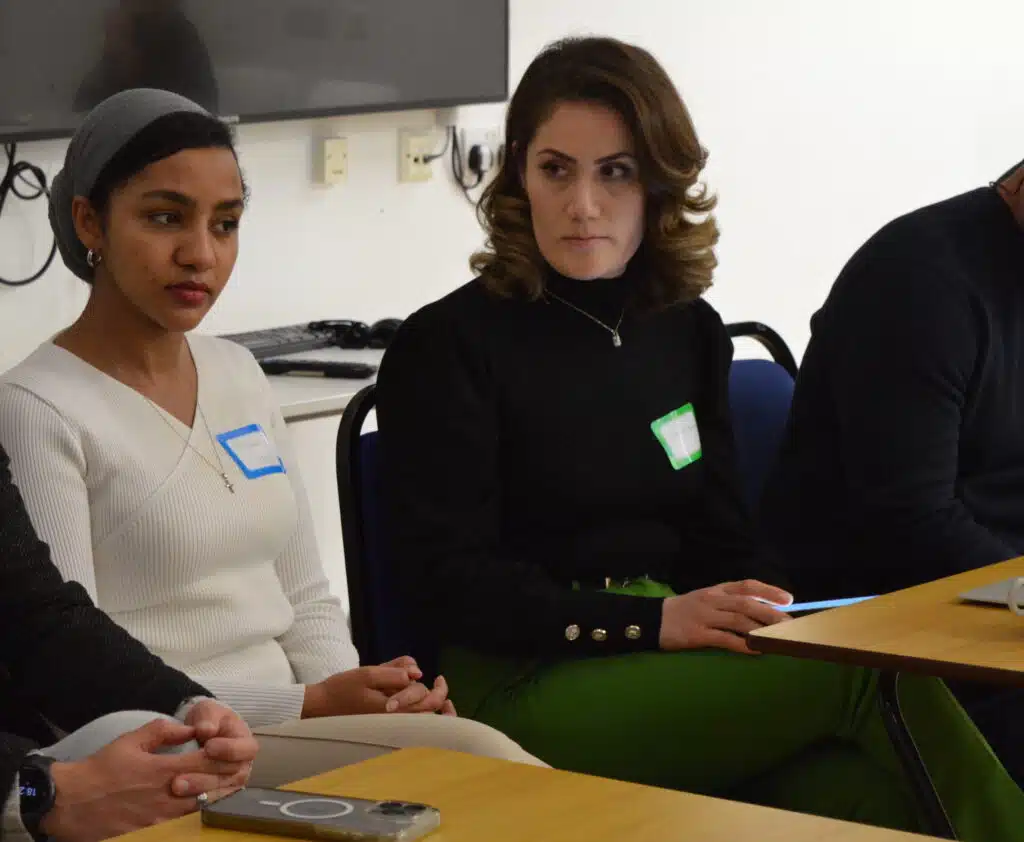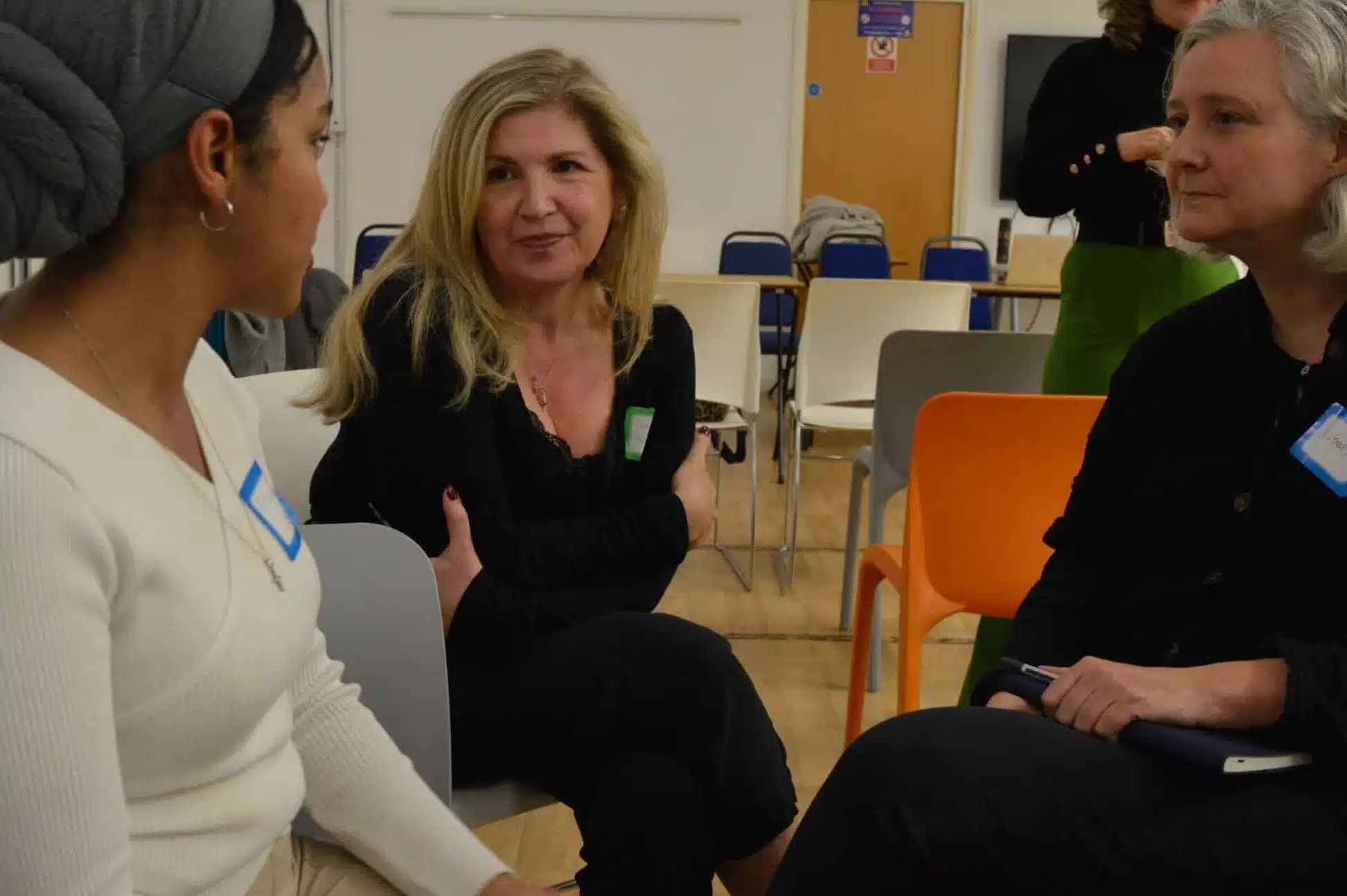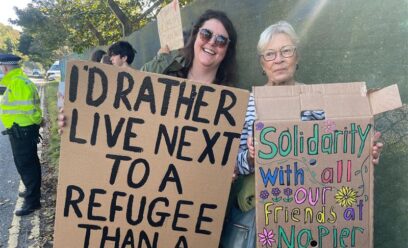Behind the Headlines: Rethinking the narrative on refugees and asylum seekers.
Posted by Zahra Shaheer on January 8, 2025
In November 2024, IMIX hosted a vital event, Behind the Headlines: Channel Crossings Uncovered, aimed at reshaping the narrative surrounding refugees and asylum seekers, particularly in the context of the Channel crossings. The event gathered journalists, journalism students, and refugees, many of whom had first-hand experience of these dangerous journeys, offering a platform to humanise the often-misunderstood refugee experience. Afghan journalist and former Refugee Week Ambassador, Zahra Shaheer who chaired the panel discussion explains why events like this are crucial to changing the narrative.
One of the most impactful parts of the event was the Human Library, an interactive experience where refugees and asylum seekers shared their personal stories directly with journalists. This innovative format allowed for meaningful, one-on-one conversations where journalists were able to hear first-hand accounts of the challenges refugees face—family separation, the trauma of fleeing violence, and the harsh realities of seeking asylum. The Human Library offered an invaluable opportunity to step beyond the headlines and engage directly with the people at the centre of these stories.
During my remarks, I emphasised the importance of rethinking how we talk about refugees. I said, “How can we use the word ‘crises’ to describe human beings and their rights? Crises are for natural disasters—not for people forced to flee their homes.” This simple but powerful statement highlights how the term ‘crisis’ can dehumanise refugees, reducing their complex experiences to a sensationalised narrative. The reality is that refugees are not a ‘crisis’—they are people who have been forced to flee their homes, often under extreme duress, and they have the right to live in dignity and security.
The event was also an opportunity to reflect on the global context of the refugee crisis, particularly in relation to the ongoing conflicts in Afghanistan, Ukraine, Syria, and Palestine. As an Afghan refugee myself, I shared my experience and spoke about the continued struggles faced by millions of Afghans under the brutal Taliban regime. I emphasised the continued risks faced by my fellow Afghans and how the international community has often turned a blind eye to the human rights abuses taking place in Afghanistan.
This global perspective is crucial to understanding the refugee experience. While many of us might feel overwhelmed by what is happening around the world, we cannot forget that refugees are people—people with hopes, dreams, and the potential to rebuild their lives and contribute to society. Refugees are survivors who have endured unimaginable hardship, and they deserve the opportunity to live free from fear, oppression, and violence.
This was a core message of the event: refugees are not a burden. They are changemakers, leaders, and contributors to the societies that welcome them.
During the panel discussions, we explored how refugees can thrive with the right support. I shared how, despite the hardships, refugees can play an essential role in their new communities. With the right access to resources—education, healthcare, employment, and support from local communities—refugees can rebuild their lives and become active, contributing members of society.
One of the most powerful aspects of the event was the chance to engage with refugees who had experienced Channel crossings firsthand. Their stories were harrowing, yet full of hope and resilience. It is easy for the media to sensationalise stories about refugees arriving by boat across the Channel, but the people making these dangerous journeys are not criminals; they are people seeking safety and a chance to rebuild their lives.
The event also provided space to discuss the particular challenges faced by vulnerable groups such as women and children. Women refugees are especially at risk of exploitation, trafficking, and abuse, while children, separated from their families or caught in conflict, face immense challenges. However, it is important to also recognise the struggles of men who become refugees. Men too have their hopes, their dreams, and their right to live in safety. We often forget that refugees, regardless of gender, are human beings with the same basic needs and desires: the desire for safety, the desire for security, and the desire for a better life.

I also reflected on the critical role journalists play in shaping public opinion about refugees. The language used by the media is powerful; it can either humanise or dehumanise refugees. Journalists must be aware of how they frame their stories. When the media uses terms like ‘crisis’ or ‘invasion’, they contribute to an environment of fear and othering. But journalists also have the power to use their platform for good—reporting accurately, empathetically, and with a focus on the humanity of those affected by conflict and persecution.
As chair of this event, I was deeply moved by the conversations that unfolded. Refugees were not simply victims of tragedy; they were individuals with incredible strength and resilience. Many of them shared their stories of survival, the journey to safety, and hope that one day they would be able to live with dignity and contribute to the society Their stories were not just of suffering, but of courage, determination, and a desire to build new futures.
The event also highlighted the urgent need for safe routes for refugees. As a global community, we cannot allow people to continue making perilous journeys by boat, risking their lives in search of safety. Safe, legal pathways for seeking asylum are essential to prevent further loss of life and to ensure that refugees are treated with dignity and respect. The international community must come together to create policies that protect those fleeing violence and persecution, providing them with safe routes to safety.
The Human Library experience was a powerful reminder that refugees are not statistics or faceless figures in a headline. They are real people, with real stories, who deserve the same rights and opportunities as everyone else. The event reinforced the idea that the refugee experience should not be reduced to a crisis narrative. Instead, we must see refugees for who they are: resilient, resourceful individuals who have survived immense hardship and have the potential to contribute positively to their new communities.
As I said at the event, “We must stop treating refugees as problems to be solved. They are people to be supported, empowered, and embraced.” This message is what we must take forward as we continue to work towards a world where refugees are not only safe but also given the opportunity to thrive.




